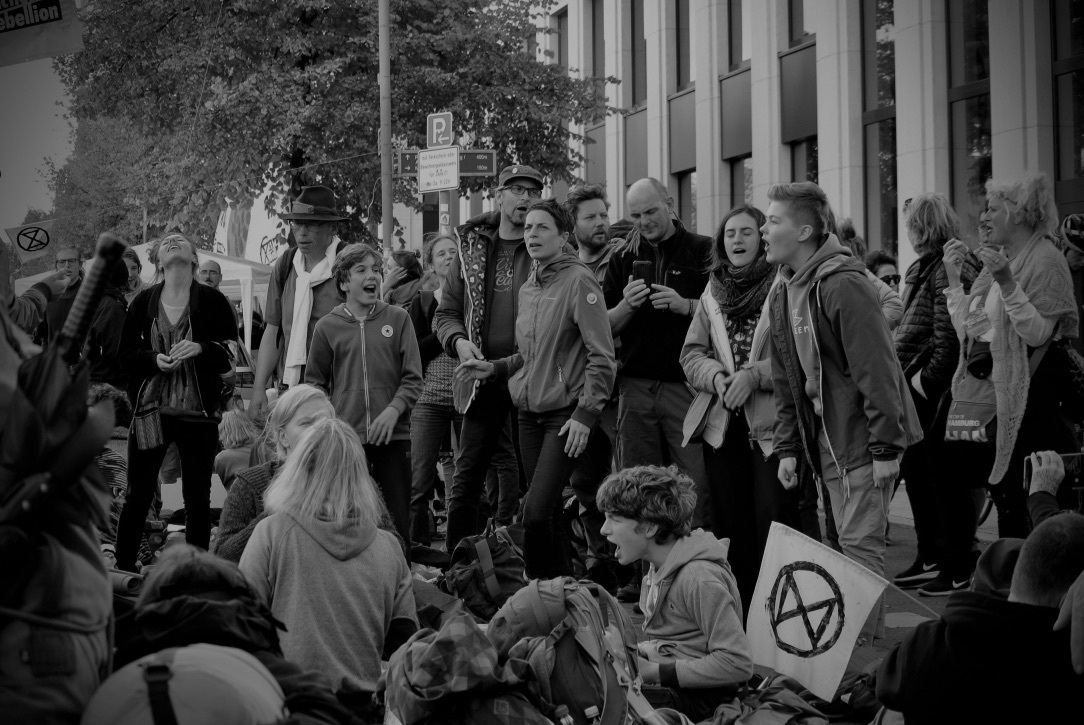
Author: Farah Barakat, Hudara
FFF developments
The social movement among students is demanding that climate action be implemented as comprehensively, quickly and efficiently as possible. Local groups formed everywhere, big demonstrations took place, the media reported, attention was high. Then Corona came and the pandemic meant: hardly any demos, hardly any meetings, other problems. Many of the participants are frustrated above all, because although 1.4 million people were on the streets all over Germany, there was little political action. But many from the FFF are still there, like Dennis Gerog, and the findings of the new Intergovernmental Panel on Climate Change (IPCC) show that drastic efforts to reduce greenhouse gases are increasingly urgent.
What sparked your interest in getting involved with FFF?
My activism started when I was still a student and not politically active. The only thing I knew about climate change until then was that it was bad. When a local group formed in Darmstadt, I joined the movement and was soon sent as a delegate to the large, nationwide group to carry important information about upcoming decisions to our local group. It was a great time to see how the movement grew bigger with every demonstration and how the visibility of the issue “climate crisis” increased every week.
How would you suggest could young people get more involved in policy, decision-making and sustainability action, in addition to their advocacy role through the demonstrations?
The two biggest ways – in my opinion – are either to give them a voice by lowering the voting age to 16 or to create citizens’ councils that include people from all generations and backgrounds. Other organisations are already taking aim at these issues. FFF is trying to support through social media or mutual skill sharing.
What do you think are achievements of the movement? What are probably also disappointments and things to continue working on in future actions?
Our biggest achievement – in my opinion – is the change in the influence of science on policy decisions. Although much more needs to change, we have received feedback that scientists are increasingly invited to meetings with politicians and other influential events as “scientists for the future”. This is incredible! Another visible achievement of our movement is certainly the media coverage and attention to the climate crisis. This forces politicians to do something about climate change (or at least pretend to).
However, this “greentalking” is one of our biggest disappointments. Although we are forcing politicians to act, they have made decisions like the “coal phase-out law” in Germany. This is being sold as a great step against climate change, although it is impossible to achieve the greenhouse gas reduction targets with it in the time frame necessary. This was like a slap in the face for every climate activist. Especially because these decisions were taken shortly after we had managed to get 1.4 million people out on the streets. This lack of adequate action and political honesty is our biggest disappointment.
A few activists from Fridays for Future are now entering politics and this is causing controversy. Some say that these representatives can bring new ideas from the movement into politics and that it is the logical next step if you want to achieve changes in the political/economic system. Others say it is a movement and it needs to stay true to itself, focus on its mission and continue to raise its voice to bottom-up politics.
I think it is one of several possible next steps in an activist’s life. If someone realises that politics is something that fulfils him/her or feels that they can use their strengths in parliamentary debate to achieve our common goal, then that is probably the right decision for that person. There is a great shortage of young people in local politics in particular. However, this is a possibility for the individual activist, not the next step in the life cycle of the movement. Because one big goal of our movement is to get many politicians of all parties to respond to our demands and do more about the climate crisis. If we as a movement decide to join one or a few political parties, we become just another political current and our position as a non-partisan, macro-social voice of science is lost.
How can organisations like Hudara and other NGOs support the movement and the work you are doing for FFF?
It can illuminate ways in which the things we at FFF are fighting for on the streets actually work when there is the will to implement them. It can show that concerns about feasibility are an irrational fear of change and that it is possible to take abstract concepts like intersectionality into practice. Synergies in outreach and funding are also a good way forward. I want to emphasise that the best kind of support is mutual. This means that the impact of our efforts is amplified together to move closer to our one goal of global climate justice.












